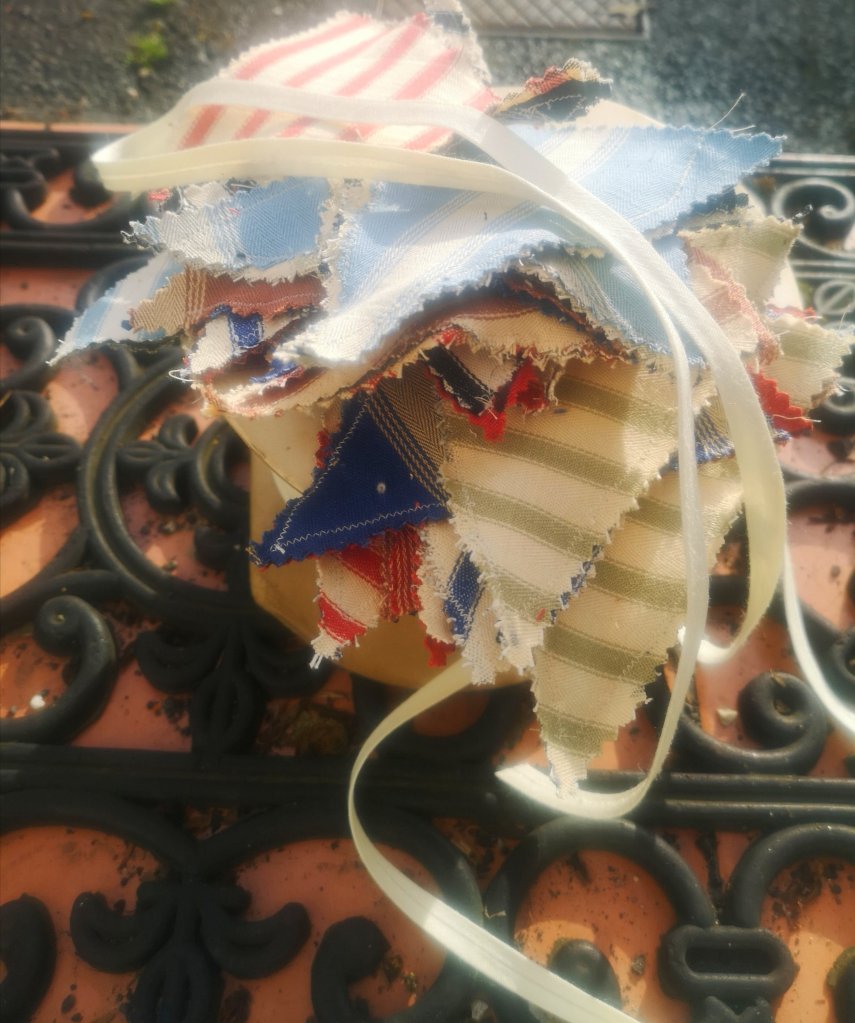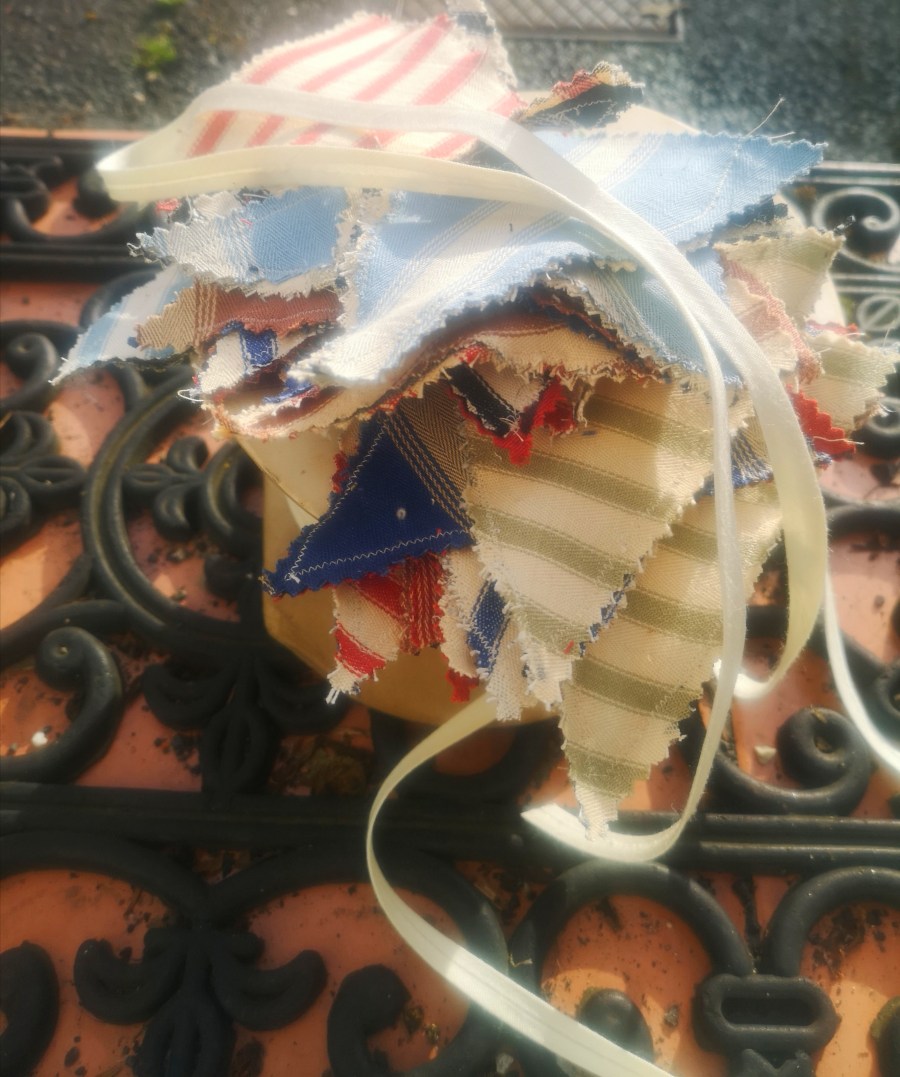
Every picture tells a story. This picture however tells two stories, one a simple story of making and the other, the story of the consequence.
For some time I have tried to be more sustainable in my painting and creating world. I no longer buy new canvasses to paint on but rely on finding donated canvasses at charity shops. Where possible I buy my paints from independent manufacturers. Similarly I like to get all my fabric and haberdashery requirements from our local Scrap Store where all sorts of things are directed away from landfill and sold at very very low prices for upcycling or repurposing projects.
The picture above is of some rustic bunting that I have wanted to make for a little while. This is the second attempt. Last week I picked up some fabric from the Scrap store, it appeared to have a plastic backing which seemed a good idea for bunting. This is the second story.
I always wash anything I get from the scrap store, where possible. A plastic backing did not seem a reason not to wash the fabric.
Towards the end of the wash cycle the washing machine had an error code that suggested the washing machine was failing to drain. Youtube told me how to clear the problem. Nothing I did, though, could undo the machines filter. More YouTubing took me to places way beyond my strength or competency so I rang a local washing machine repair company who gave me an appointment in a few days time. Once more on YouTube I learned how to drain the water out of the machine and open the door to get the fabric out. In horror I discovered that the plastic backing of my recycled fabric had in fact been a complex and glossy paper backing which was now a glorious gloop of papier maché in the bottom of my washing machine. I feared the worst and felt quite sweaty about the cost implications of washing exceedingly beautiful but cheap fabric in the best washing machine German engineering can provide.
Complete honesty was the only way to approach the engineer and his apprentice on their arrival. They seemed a little surprised but not particularly concerned. Twenty minutes later they emerged with a tiny quantity of papier maché and a bent and tarnished twenty pence piece. The machine was well on its way through a normal cycle.

German engineering can cope with papier mache but not, it seems with a twenty pence coin trapped in the filter.
Finding the twenty pence piece cost me £45. I still have to wash all those pieces of fabric to remove the thousands of particles of paper off them. This time by hand, I have no wish to see error E18 again even if the machine has proved it can cope. My bunting is made with unwashed fabric, another hand washing project for later in the week.
I’ve saved nearly three kilogrammes of fabric from landfill in a week. This does not feel as virtuous as it should! So far even the twenty pence is out to vex me. Every parking machine, so far has rejected it, and handing it over in a shop will just look as if I am trying to pass over an archaeological find rather than legal tender.



